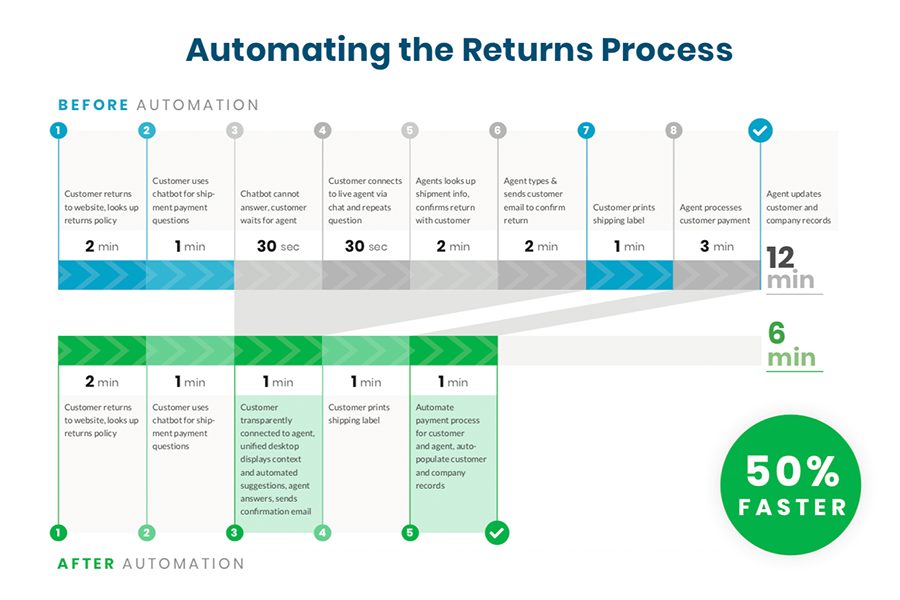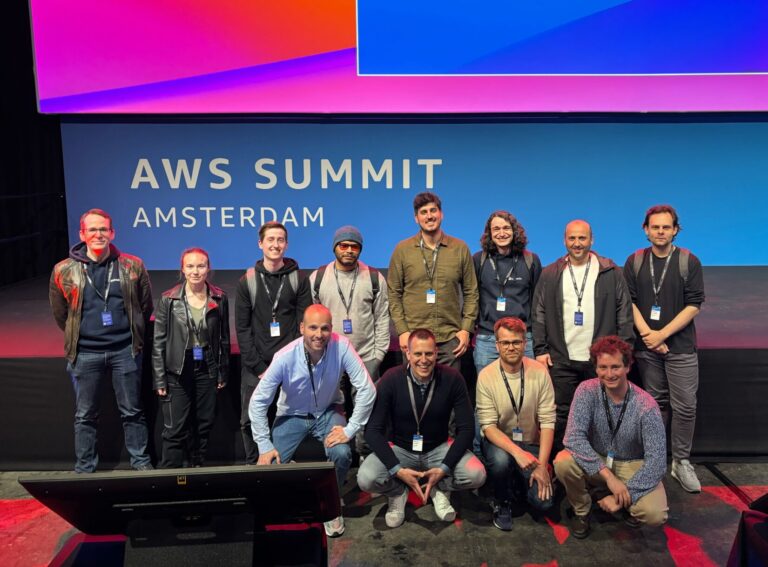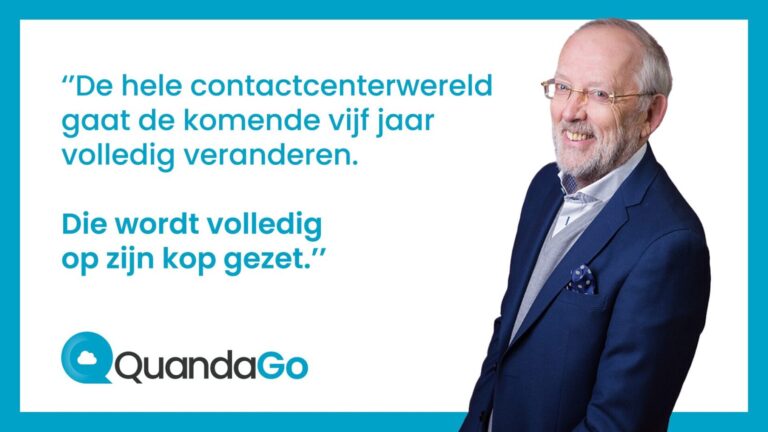Until now, most companies exploring automation have implemented various forms of robotic process automation or RPA versus more advanced Intelligent Process Automation solutions. Simply defined, RPA enables companies to automate basic tasks and workflows to make them more efficient. RPA examples include assistance with form completions, transferring data from one system to another, and handling basic customer inquiries. While the implementations deliver benefits in the form of reduced time and cost to get basic work done in the contact center or other part of the business, the use cases are typically siloed within a single part of a customer journey or focused only on replacing simple and routine tasks for employees.
The promise of automation is about so much more!
At QuandaGo, we believe automation is all about helping people, not replacing them. Yes, automation will remove certain basic tasks in the contact center and beyond, but the true power lies in its ability to help people, making them smarter and faster.
The Intelligent Process Automation Difference
While RPA has provided a way for companies to introduce the benefits of automation into their operations, implementations mainly focus on simple, repetitive tasks. Intelligent Process Automation (IPA) takes things a step further. For example, IPA enables companies to integrate more data sources and apply automation that enables smarter decision-making based on real-time, contextual information. From a customer journey perspective, this type of cognitive automation can be added to the automation of repetitive tasks for agents–providing a ‘wider’ impact for both agents and the customer.
See what we mean in the Automating Customer Returns example below:

Because IPA uses both structured and unstructured data—two of the most commonly used data types in the big data analytics era—companies can bring more data and context into the decision-making process, and take the smartest next best actions to deliver the best outcomes. Companies can also increase their ability to integrate and analyze more data than ever before by applying natural-language processing (NLP) applications, such as conversational analytics, and optical character recognition (OCR) to help speed the analyses of data and documents from multiple systems.
Now, to be fair, IPA takes more time to implement than using RPA for simple processes, and it’s likely your people may need some training and upskilling. But the business rewards are greater and the long-term impact on your company and your customer experience can be profound, including:
- 50% increase in customer satisfaction scores
- 25% increase of employee engagement
- 65% improvement in process efficiency
- 50% reduction in costs
To be successful, you need a technology provider that can help you look beyond current automation approaches and deliver enterprise-wide impact. At QuandaGo, we can help you implement next generation Intelligent Process Automation by:
- Combining automation with other tools to impact the end-to-end customer journey, including in the contact center and back office.
- Putting companies on a path to enterprise-wide automation with an integrated strategy that connects in more data, including from 3rd parties, and breaks down company silos.
- Providing automation expertise to support customers on their entire automation journey.
If you’re interested in learning more about Intelligent Process Automation and how it can benefit your company, check out this Business Impact Guide on the CX Automation Opportunity.
Or sign up for an IPA Demo here!






